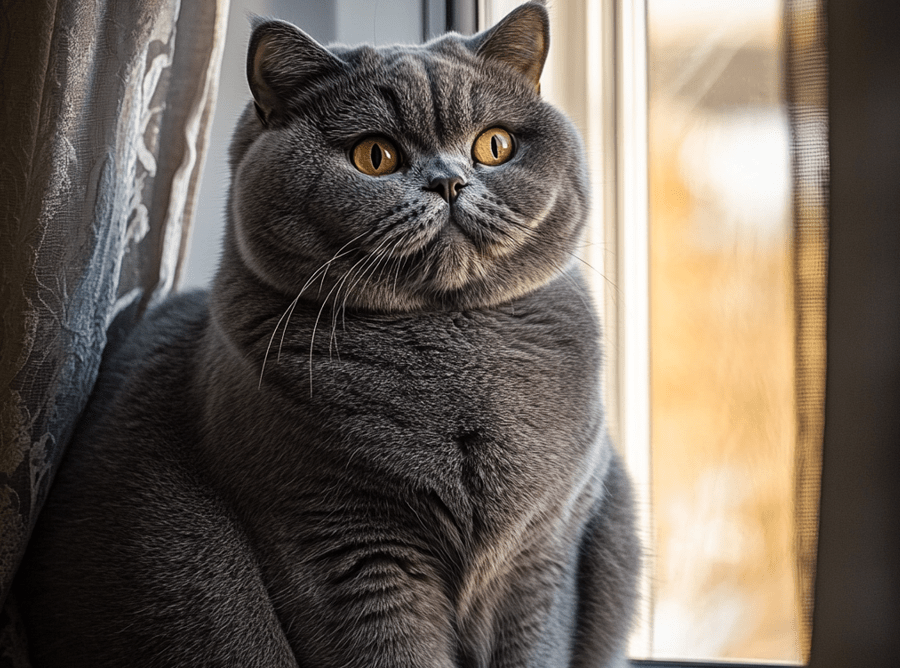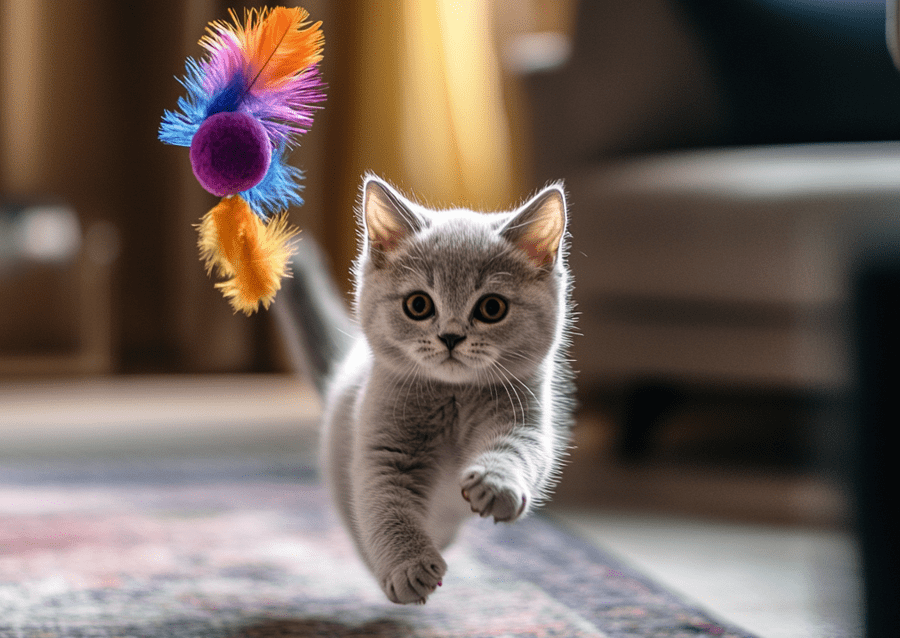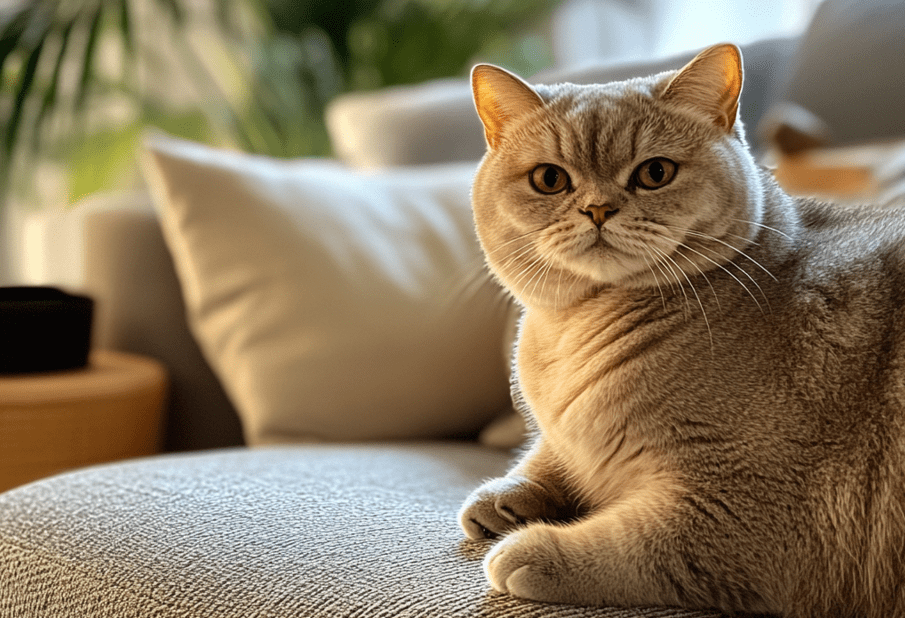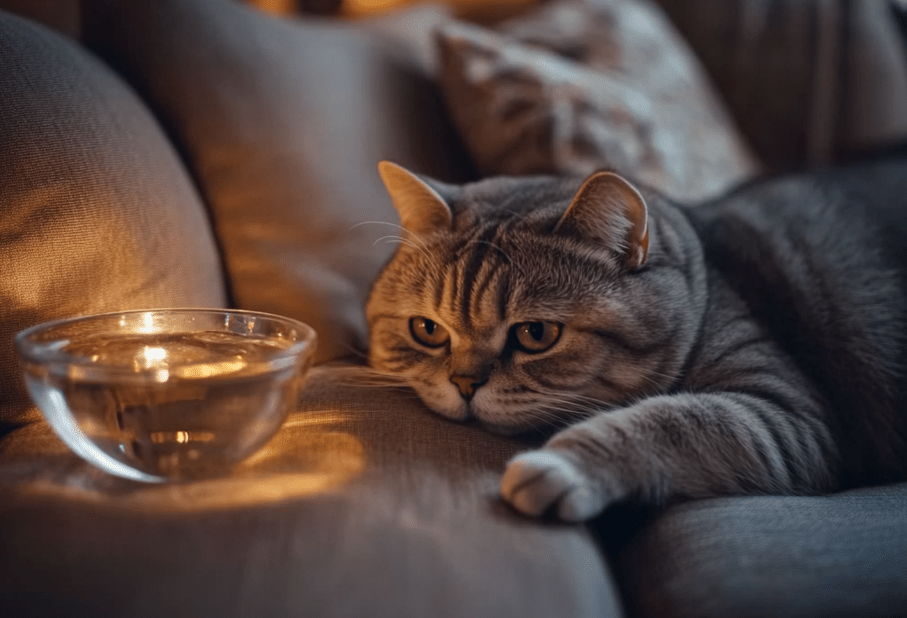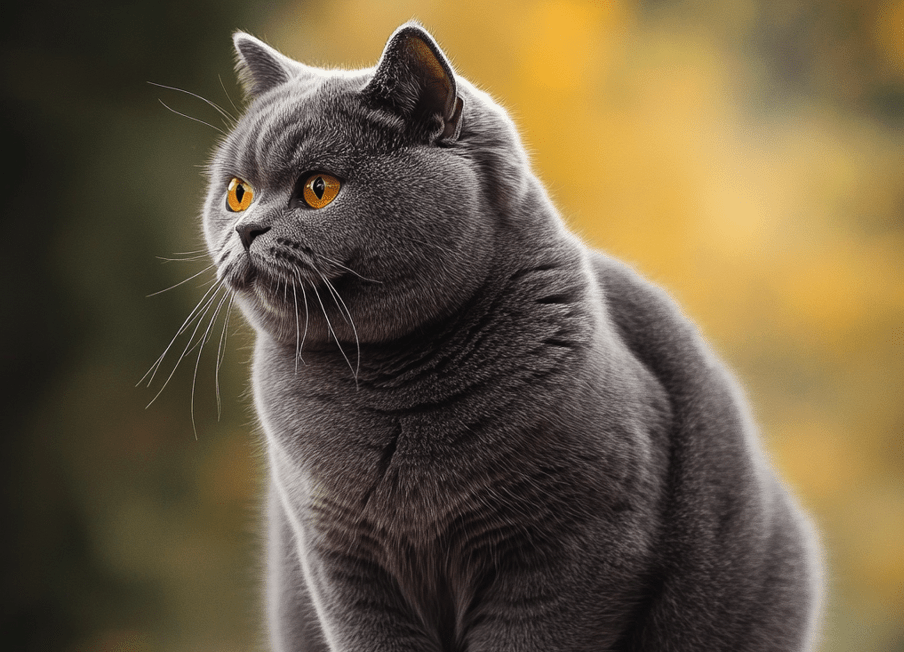Overview
When one hears the name of British Shorthair, most often popup the image of Cheshire Cat from Alice in Wonderland. British shorthair cat personality – The personality of this breed is often the most striking aspect that captures attention. The breed is claimed to be the inspiration behind Lewis Carol’s character because of its cool, calm and smiling demeanor. British Shorthairs may look like taciturn bodyguards, but in truth they are wonderfully cuddly couch potatoes who love a good soak in the sun with their humans. British blue cats personality – You can also view this as a great example of the general demeanor of British blue cats. Their fluffy coats and big size make them perfect for hugs, perfect for cat lovers from every age group. British blue cat personality– This is an important characteristic for any British Shorthair. They are calm and friendly, making them easy to live with, whether you have a family or if you live in an apartment. British short hair personality – Their personalities are just as adaptable in both family and apartment settings.
To watch the summary of this article, just watch this video-
British Shorthair Cat History

British Shorthairs are descendants of old Rome. It is thought that these cats came to England with Roman Soldiers, and that they were sourced from Egypt. This is why British Shorthairs are among the oldest established cat breeds. Well known for their unparalleled skills at hunting mice, avian neighbors of these cats were instrumental in protecting the food reserves of the Roman army. Characteristics of British shorthair cats – These characteristics make the breed a great companion.
In the early 20th century, these Roman-era cats were bred with Persian cats to produce a longhair variety, which became known as British Longhairs. This was before World War II when food availability in England was very limited, and many blood lines were culled almost out of existence. Breeders saved the breed by breeding these few individuals of British Shorthair blood with domestic shorthairs, Russian Blues and Persians.
If in doubt, speak to your vet about what your own British Shorthair will need. These charming felines are the best companions that can bring joy in your life provided you take care of their health for years.
Features of British shorthair
Physical Appearance:
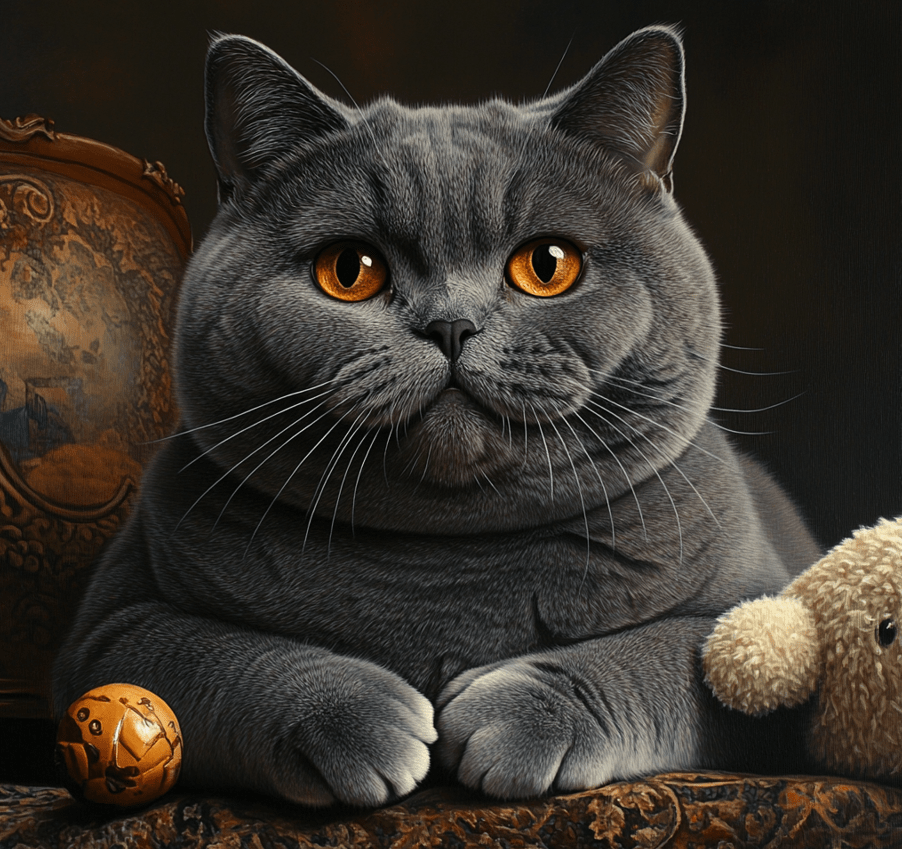
They are larger, stocky cats known as the British Shorthair. The British Shorthair adult would generally weigh typically between 6 and 12 pounds, some may exceed this range however. They have minimal sloping at the forehead and are characterized by a round face. They have big round eyes, and the ears are wide with rounded tips. Available in 30+ colors, their high-density, excessively dense coat is most often associated with smoky blue. British Shorthairs are among the healthiest and most hardy of cats, typically living between 12 and 20 years.
Temperament:
British Shorthair cats are social but not overly affectionate. They will tend not to cuddle as they will find their thick furs too hot for close contact. British short hair cat temperament – The temperament of a British Shorthair is more independent than other breeds. But they like to be in the same room as their owners and want to be with you, whether not necessarily sitting on your lap. These cats can also be very happy on their own when needed. They are not very active, nor do they need a lot of exercise and perfect pets for apartments where living is space restricted.
Caring For British Shorthair Cats
British Shorthair cats are not different from other pets; they need regular attention, such as feeding, grooming and veterinary services. Though they share the same upkeep needs comparable to house cats, raising them with their own particular needs in mind is important for their overall safety.
Coat Care:
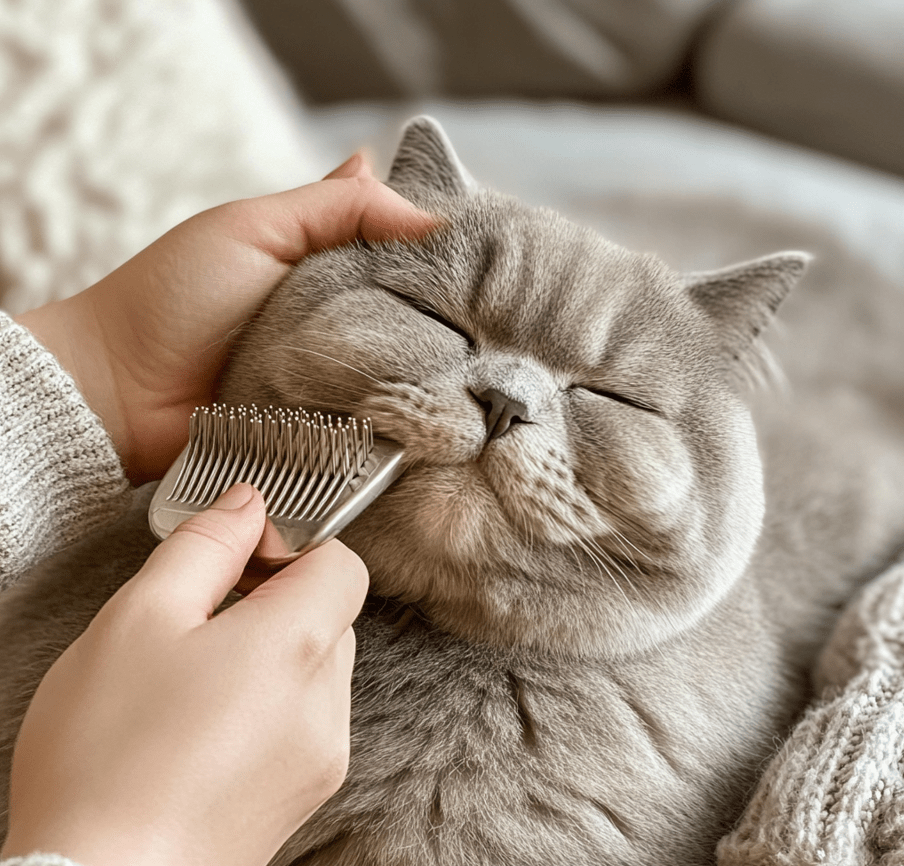
The British have dense, long and velvety fur which is cozy to the feel of touch. They do groom themselves, but their coats are easily matted. Weekly brushing with a wire brush is recommended to prevent tangles. They also tend to be seasonal shedders and regular brushing will keep the amount of hair on your chairs and floors down.
Feeding:
British Shorthairs are large cats, but they don’t need big portions of food. They have a low to moderate activity level meaning they could put on weight if overfed. Most of the time their nutritional needs will be met with good cat food in moderation. An optimal diet is where your vet can help.
Requirements for exercise and activity:
British Shorthairs are rather lazy cats, more just a little overweight and clumsy; they never seem to be ultra-fit. They can also be intense in “zoomies” when they run around before going to their spot, but mostly they like a chilled-out indoor life. You can give them toys at this time as well because they can be active during these times.
Flea, Tick, and Worm Care:
British Shorthairs, like all cats, are susceptible to common parasites including fleas, ticks and worms. Fleas and ticks are not as prevalent with indoor cats like they are outdoor free-roamers, but an inside cat that is given brief outside moments here and there still comes across these blood-sucking critters. Likewise, parasites can also enter the home by way of other pets or even people. The good news is that there are several ways to prevent fleas and ticks, and your veterinarian can help you select the most appropriate method for your feline companion.
Gastrointestinal worms (roundworms and tapeworms) can also occur in cats, resulting in diarrhea, vomiting, poor appetite, a dull coat or cough. Usually these can be cured with a prescription from your vet. A note about heartworms — This is a potential issue, but treatment is difficult in cats. Heartworm is easily preventable with the right medication on a regular basis, so therefore your veterinarian can prescribe an adequate prevention.
Tooth and Nail Care:
Most cats, such as the British Shorthair, require their nails to be trimmed on a regular basis. You can also have your nails trimmed at home using nail clippers recommended by your vet, but if kitty is uncooperative during, a professional groomer or veterinary staff will help.
Brushing your teeth every day is an effective way to keep your teeth healthy for life. Brush with a toothbrush and toothpaste Formulated for Cats, provide dental treats or chew toys. Make sure that the vet checks your cat teeth on every visit, because they might need a professional cleaning from time to time.
Time Outside and Climate Preferences:
British Shorthairs should never roam free, as they are not fast enough to escape predators. Because of their thick coats this can lead to the risk of overheating in warm temperatures, so make sure you keep them cool and comfortable inside.
Veterinary Visits:
All cats, British Shorthairs included, should have regular checkups. Core vaccines are needed to prevent panleukopenia (feline distemper), feline calicivirus, feline herpesvirus type I (rhinotracheitis) and rabies. Other vaccines, including feline leukemia, Bordetella and Chlamydophila felis may be suggested based on lifestyle and location. Ask your vet they will be the best person to recommend any other vaccines that may need to be taken.
Keep your British Shorthair happy and healthy through regular care for their unique needs.
British Shorthair Cat Health Problems
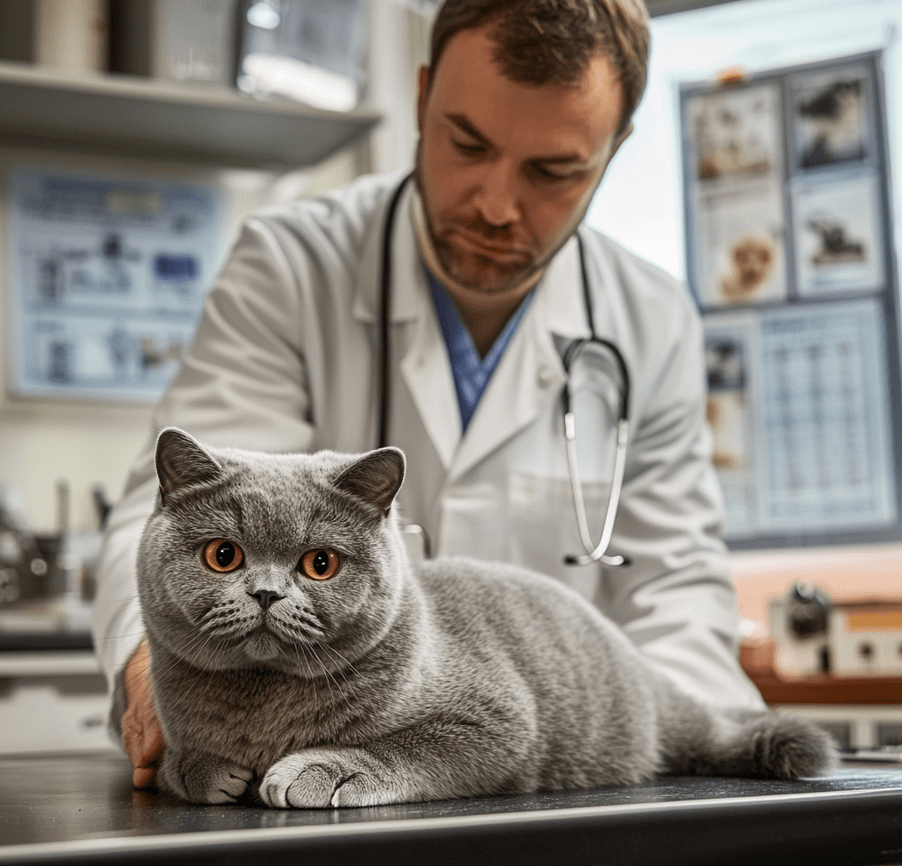
British Shorthair cats are primarily hardy, healthy breeds with few known genetic health problems. They are known to live long, healthy lives, provided they receive good care and regular veterinary visits. But they are prone to some conditions, especially affecting the kidneys and heart.
Polycystic Kidney Disease (PKD):
Polycystic kidney disease (PKD) is an inherited condition found in cats that leads to the development of cysts in the kidneys. These cysts live in the kidney from birth and increase in size so that they may affect renal function. Other affected cats may show no signs or very few, while some go into kidney failure (more thirsty, vomiting, weight loss or blood in the urine). Common management consists of dietary modifications, fluid therapy and symptomatic medications (such as for nausea). This is especially noted in British Shorthairs with Persian bloodlines.
HCM or Feline Hypertrophic Cardiomyopathy:
Hypertrophic cardiomyopathy (HCM) is a heart condition where the walls of the heart are thickened and work less efficiently, which can lead to serious complications. Other cats with HCM may be asymptomatic, while still other cats will develop signs of congestive heart failure—lethargy, difficulty breathing or open-mouthed breathing. It also increases the chance of blood clots. There is no cure for HCM, but people can take medication to help control symptoms and prevent complications. This progressive condition typically gets worse as you grow older.
Caring for British Shorthair Cats
British Shorthairs have a calm personality and love being in the company of their owners. They like to be near their humans, but may not enjoy being held or cuddled. Generally, these cats are content to lounge in the vicinity or just share a space with their human families.
Behavior and Compatibility:
British Shorthairs have a nature suited to getting along with dogs and other pets. When bringing a new pet into the home, talk to your vet or an animal behaviorist about helping everyone make the transition. These cats are also good with kids but could get stressed if someone treats them roughly. Show kids how to play nice and respect a cat’s space.
Grooming and Shedding:
This means, this breed has a really thick coat that is likely going to shed a lot as well. Frequent brushing allows you to control the shedding and keeps your home fur-free. Prospective owners need to be aware they’ll have cat hair in every room of the house.
Maturity:
It takes a long time for British Shorthairs to physically mature, often not reaching full maturity until about five years old. This slow development of the dog should be taken into consideration by all owners and proper diet and care must be provided throughout this time.
British Shorthair are a great fit for nearly any home because of their loyal, but laid back personality and low-maintenance lifestyle. Give them a good environment and take care of their particular needs that they will grow as your loving pets.

